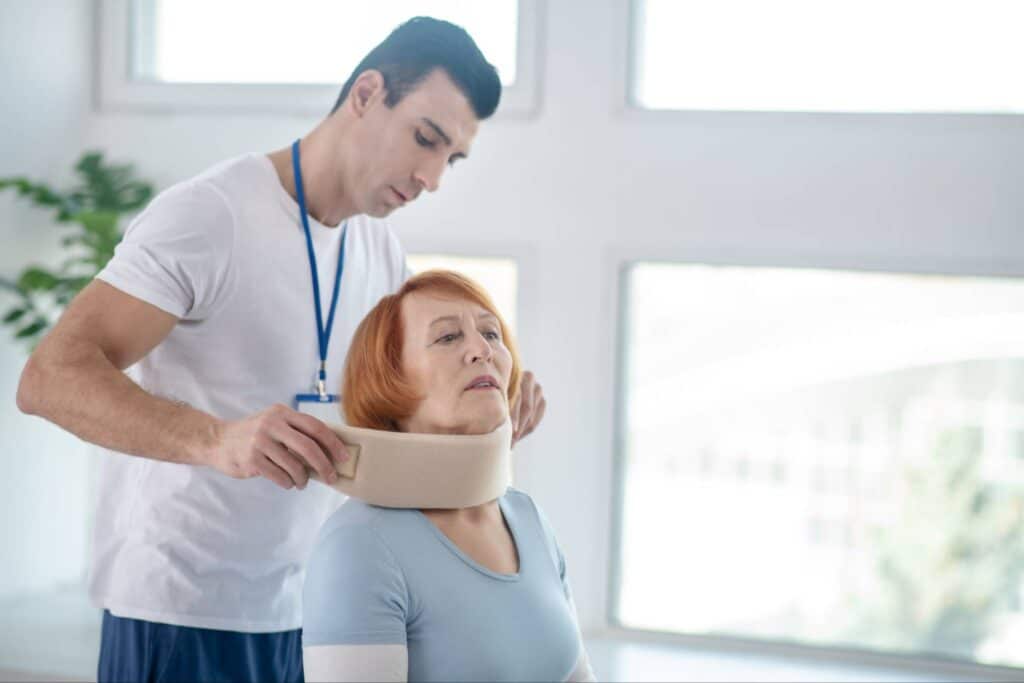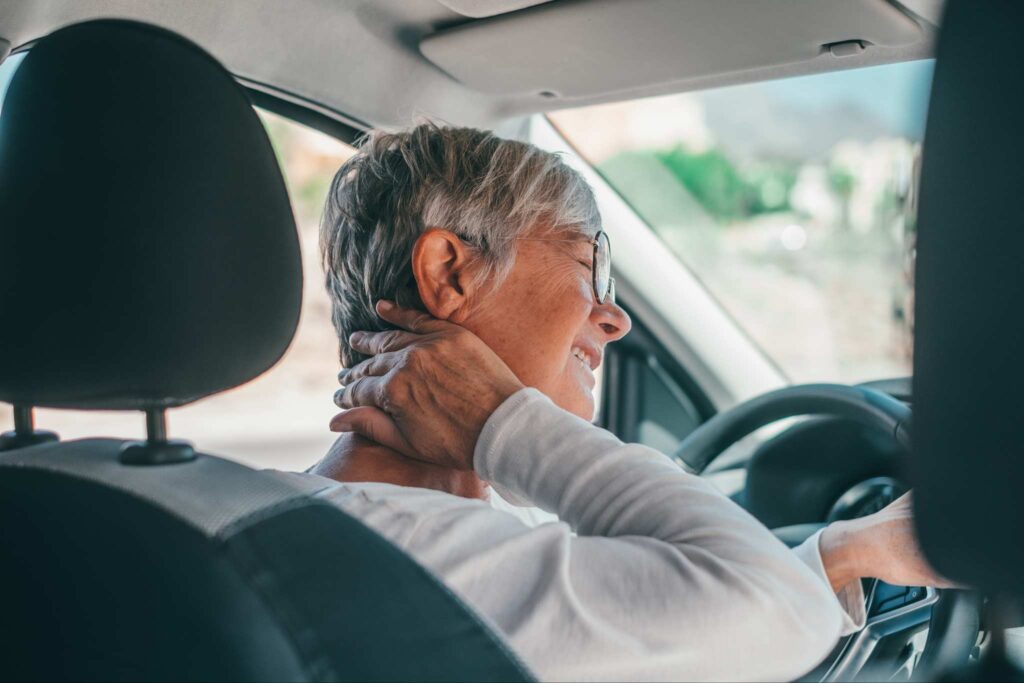If you walk away from a car accident without any obvious injuries, you may feel rightfully grateful. However, feeling no pain at the time of an accident does not necessarily mean you have avoided injuries altogether. It may be hours or days before you start to feel stiffness in your neck, pain in your joints, or other overall soreness. It is important to understand that these symptoms still warrant a visit to an orthopedic doctor in Atlanta to ensure you haven’t sustained damage. One of the most important things you can monitor is how your hips feel and perform in the critical time after an accident. Because your hips are crucial to your ability to move, any potential injury to the hip joint can be serious and require medical attention quickly.
Delayed Injuries After Car Accidents
We typically associate the idea of endorphins with positive experiences, which can be true. The body contains over 20 types of endorphins, which are neurotransmitters that send signals to your whole body. These are often released when you feel a rush, like riding a roller coaster or eating very good food. However, our bodies also release endorphins during times of stress and pain as a way to counteract these feelings. That means that during an accident, the fear you experience may cause you to release endorphins, allowing you to persevere through any pain you are enduring. The shock of the moment may prevent you from realizing your body has suffered a car accident injury.
As you are able to process the events of your accident and your body returns to normal, that hip pain will become apparent and you can more easily identify symptoms of injuries. If you experience delayed pain of any kind, it’s important to seek care from an orthopedic doctor in Atlanta promptly to get ahead of the issue and begin appropriate treatment.
Common Hip Injuries from Car Accidents
The hip is the body’s largest weight-bearing joint, connecting the thigh bone to the pelvis. It contains a ball at the top of the femur and a socket at the side of the pelvis that work together to facilitate movement. Like all joints, this process relies on the cushioning of fluid-filled sacs. All the pieces of your hip need to work together effectively to allow for comfortable movement and an accident can impede this movement in multiple ways.
The most common injury due to an accident is fractures of either the hip socket or other parts of the joint. The blunt force trauma caused by an accident can also fracture surrounding bones that then are forced into the hip, obstructing its ability to move properly. These fractures can be long and painful to recover from, often requiring major surgeries or even replacement of the full hip. Hip joints can also be dislocated, which usually heals without invasive procedures but can be painful after an accident.
Another injury that is common after blunt force trauma is bursitis, in which the fluid-filled sacs become inflamed and cause severe pain. This can be hard to diagnoses and is often felt some time after initial impact, so it’s important to have an orthopedic doctor in Atlanta who is trained in diagnosing the condition. While bursitis is usually treated with rest and ice, more severe cases can require physical therapy, steroid injections, or even surgery.
Frequently Asked Questions on Delayed Hip Pain
Why do I have lower back and hip pain after a car accident?
Lower back and hip pain after a car accident can be caused by several factors, including the impact and force exerted during the accident. This force can lead to fractures, dislocations, and soft tissue injuries such as bursitis in the hip and surrounding areas. The body’s natural response to trauma, including the release of endorphins, may initially mask pain, leading to delayed symptoms. It’s crucial to seek medical attention from an orthopedic doctor to diagnose and address these injuries properly.
Is it normal to have hip pain years after a car accident?
Yes, it is normal to experience hip pain years after a car accident, especially if injuries sustained during the accident were not fully addressed or led to chronic conditions. Conditions such as post-traumatic arthritis or unresolved bursitis can cause ongoing pain and discomfort. Continuous or worsening pain years after an accident should be evaluated by an orthopedic specialist to diagnose the underlying cause and develop an appropriate treatment plan.
What causes hip and leg pain after a car accident?
Hip and leg pain after a car accident can be caused by direct trauma to the hip joint or leg, resulting in fractures, dislocations, or soft tissue injuries. The impact can also cause injuries to the surrounding muscles, nerves, and ligaments, leading to pain and discomfort in both the hip and leg. Bursitis, a condition where fluid-filled sacs become inflamed, can also cause pain in these areas. It’s important to have these conditions evaluated and treated by an orthopedic doctor to prevent long-term damage and ensure proper healing.
Addressing Hip Pain
At AICA Orthopedics, our team of specialists work together with a holistic approach to diagnose and treat any hip injuries that result from a car accident. While many medical professionals will offer pain medicine to hide symptoms, the team at AICA Orthopedics is committed to identifying the root cause of your pain. By performing X-rays, CAT scans, and MRIs we are able to understand the specific pain you are experiencing and create a plan to address your hip’s specific needs.
Once we have determined the type of injury your hip sustained, the team at AICA Orthopedics will form a comprehensive treatment plan, which can include chiropractic care, physical and massage therapy, and other related techniques. Our medical teams consist of neurologists, chiropractors, and orthopedic doctors in Atlanta, along with other specialists, all of whom work together to provide the most comprehensive and high-quality care. We strive to offer relief through non-invasive techniques to achieve better support and range of motion in your hips. If more invasive care is needed, we will work with you to determine the best and safest route to recovery. Whatever route helps return your hip to health, AICA will support this path and our various specialists will work together for you to receive complete care.
If you are experiencing hip pain, contact AICA today to learn more about our team and services.





